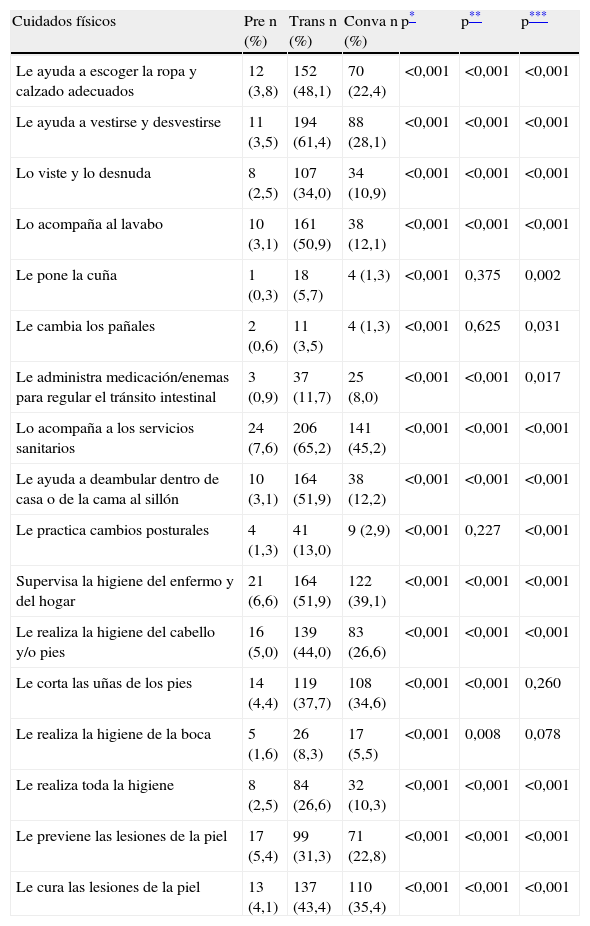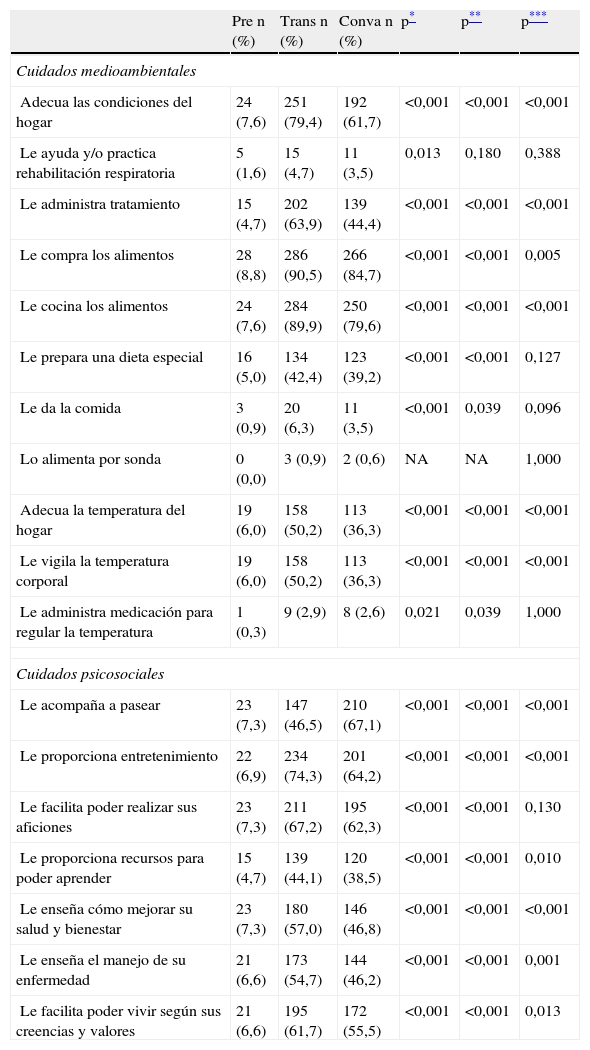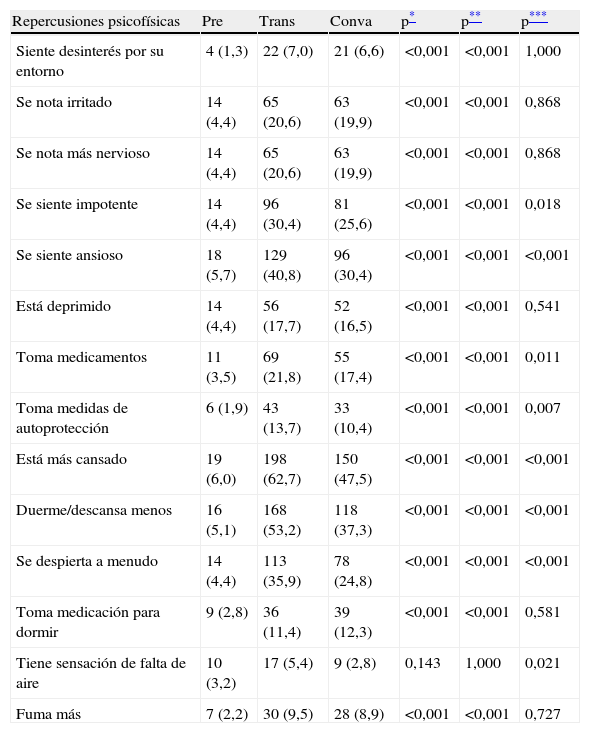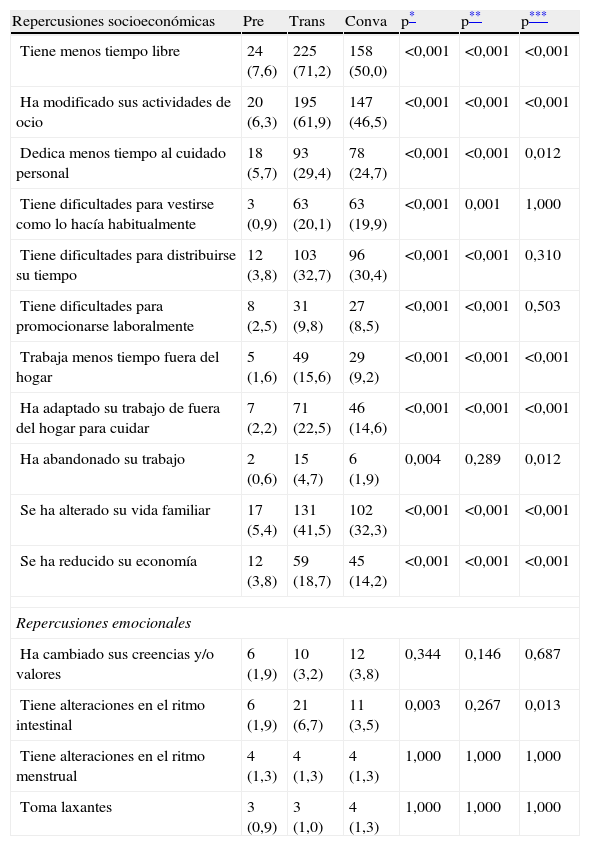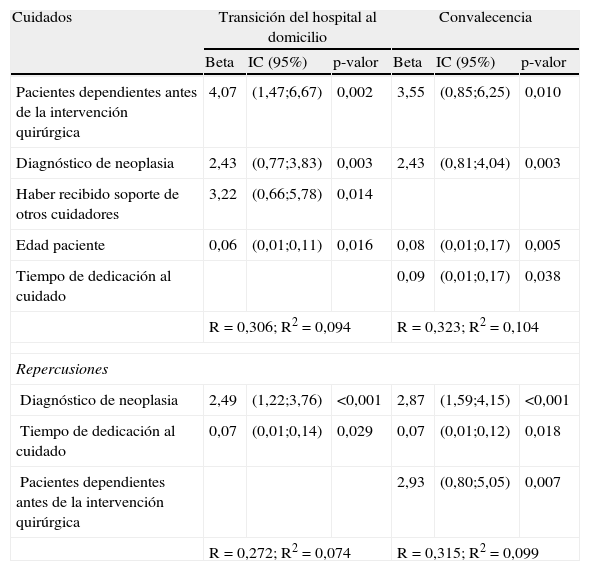Identificar el tipo de cuidados que prestaban los cuidadores de pacientes intervenidos de cirugía abdominal en el Consorcio Hospitalario de Vic, Vic (Barcelona), comparar la intensidad que suponían estos cuidados durante el proceso quirúrgico, conocer las repercusiones del cuidar sobre su salud, e identificar los factores que contribuían a la necesidad de prestación de cuidados y aparición de repercusiones en los cuidadores, en sus domicilios.
MetodologíaEstudio observacional longitudinal con seguimiento al ingreso, al alta y a los 10 días en cuidadores informales no remunerados, de pacientes con patología quirúrgica abdominal. Se estudiaron las características de los cuidadores y de los pacientes quirúrgicos que cuidaban. Para identificar los cuidados que prestaba el cuidador y las repercusiones desencadenadas por cuidar en su salud, se utilizó el cuestionario ICUB97-R, basado en el modelo de Virginia Henderson.
ResultadosLa mayoría de los cuidadores eran mujeres, de 52,9±13,7 años y sin experiencia previa como cuidadoras. La mayor intensidad de cuidados y repercusiones se objetivó en el momento de llegar a casa, tras el alta hospitalaria (p<0,05). Las variables predictivas de repercusiones fueron ser paciente dependiente antes de la intervención quirúrgica (β=2,93, p=0,007), diagnóstico de neoplasia (β=2,87, p<0,001) y tiempo de dedicación al cuidado (β=0,07, p=0,018).
ConclusionesLos cuidadores durante el proceso quirúrgico prestan numerosos cuidados en el domicilio, dependiendo de las características de los pacientes que cuidan y ello repercute sobre su calidad de vida.
To identify the care given by informal caregivers to patients who underwent abdominal surgery in the Consorci Hospitalari of Vic (Barcelona). To compare the responsibility burden for those caregivers in all the different stages of the surgical process. To determine the consequences of the care itself on the caregiver's health and to identify the factors that contribute to the need of providing care and the appearance of consequences for the caregivers in the home.
MethodologyA longitudinal observational study with follow-up at admission, at discharge and 10 days, of 317 non-paid caregivers of patients who suffer underwent surgery. The characteristics of caregivers and surgical patients were studied. The validated questionnaire, ICUB97-R based on the model by Virginia Henderson, was used to measure the care provided by informal caregivers and its impact on patient quality of life.
ResultsMost of the caregivers were women, with an average age of 52.9±13.7 years without any previous experience as caregivers. The greater intensity of care and impact was observed in the time when they arrived home after hospital discharge (p<0.05). The predictive variables of repercussions were being a dependent patient before the surgical intervention (β=2.93, p=0.007), having a cancer diagnosis (β=2.87, p<.001) and time dedicated to the care process (β=0.07, p=0.018).
ConclusionsCaregivers involved in the surgical process provide a great amount of care at home depending on the characteristics of patients they care for, and it affects their quality of life.
Artículo
Comprando el artículo el PDF del mismo podrá ser descargado
Precio 19,34 €
Comprar ahora







